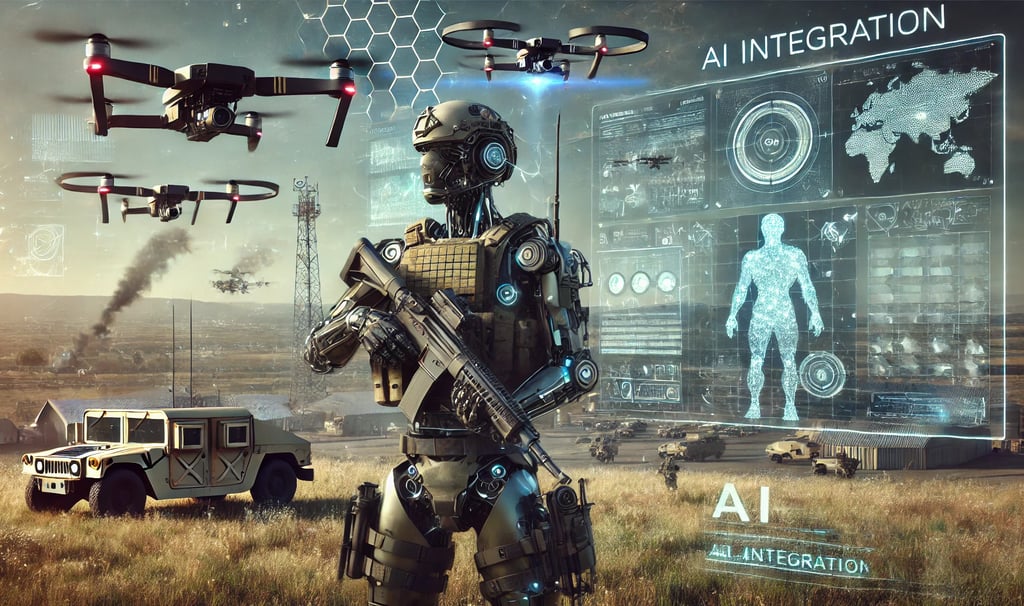AI in the Military: Enhancing Defense or Raising New Challenges?
Artificial Intelligence is transforming the military landscape, from autonomous drones to predictive analytics. But with these advancements come ethical dilemmas and new security concerns. Let’s explore how AI is reshaping defense strategies worldwide.


Introduction
Briefly introduce the topic.
Mention how AI is already used in civilian applications and how its adoption in the military is inevitable.
Applications of AI in the Military
Autonomous weapons systems (drones, robots).
Surveillance and reconnaissance.
Cybersecurity defense and offensive strategies.
Logistics and predictive maintenance for military equipment.
Decision-making using AI-powered simulations and analytics.
Ethical and Legal Implications
The risks of autonomous weapons deciding life and death.
International laws and treaties regarding AI in warfare.
The responsibility of human oversight.
Advantages of AI in Military Applications
Faster decision-making.
Improved accuracy and reduced human error.
Efficiency in managing large-scale operations.
Challenges and Risks
Potential for misuse by adversaries.
Risk of escalating conflicts due to autonomous actions.
Vulnerabilities to cyberattacks on AI systems.
Future Prospects
Speculation on the role of AI in future conflicts.
How nations are investing in military AI research and development.
The need for global cooperation to prevent an AI arms race.
Conclusion
Summarize the dual-edged nature of AI in the military.
Call for responsible and ethical use of AI technologies.